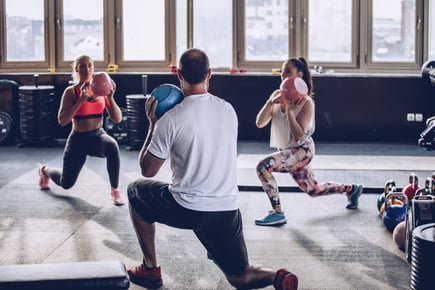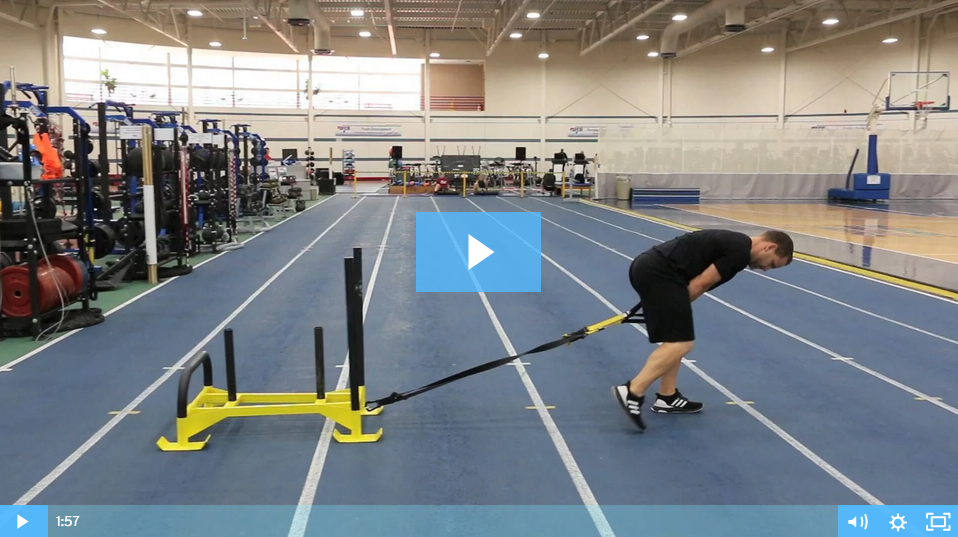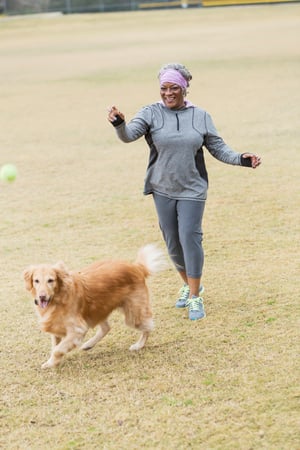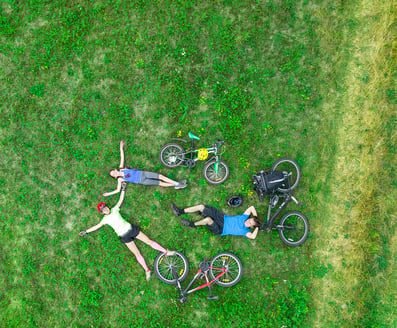 I am often asked what kind of workout program I follow, and my response is always, “I follow a program that gets me faster, stronger, and more athletic.” When people hear this, they assume that I am some kind of athlete and that they won’t be able to work out the way I do since they are not “athletes.” This is a huge misconception that I have noticed throughout the years that I have been working out. What people do not understand is that we are all athletes in our own way, and can actually train like one in order to get faster, stronger, and more athletic.
I am often asked what kind of workout program I follow, and my response is always, “I follow a program that gets me faster, stronger, and more athletic.” When people hear this, they assume that I am some kind of athlete and that they won’t be able to work out the way I do since they are not “athletes.” This is a huge misconception that I have noticed throughout the years that I have been working out. What people do not understand is that we are all athletes in our own way, and can actually train like one in order to get faster, stronger, and more athletic.
Find Out Where You’re Starting From
For me the key is to understand where you are at in terms of movement. Many programs out there assume that you move perfectly, so starting them might not necessarily be the best if you have not had the training experience needed to actually perform those movements. A good assessment to determine whether you have any compensatory patterns or movement deficiency is the Functional Movement Screen (FMS). With the FMS, we can narrow down exactly which corrective exercises are needed to get a person ready for the complex movements that might be programmed.
Start with Exercises That You’re Ready For
Once you have determined where you are at movement wise, it’s important to start with exercises that your body is ready to handle at that time. Possibly regressing a complex exercise like the Barbell Back Squat to a simpler exercise like the KB Goblet Squat or 2KB Squat will allow you to own that movement better and in turn will prepare you to progress back to the complex movement faster while performing it better.
Perform Athletic Movements
Training like an athlete does not necessarily mean you have to match their intensity or lift the same amount of weight as they do. But it can mean performing the same movements, such as these:
- Warm-up routine
- Power exercises
- Squat variation
- Horizontal upper-body push variation
- Split squat or half-kneeling variation
- Vertical/horizontal upper-body pull variation
- Supine/prone abdominal exercise variation
- Accessory exercise
These are exact movements that I program for my athletes. The cool thing is that anyone can do these movements as long as the right exercise is prescribed. No two athletes that I have trained move the same, and there are many that actually need to start with the most basic forms of movement (body squat, hands elevated push-ups, etc.). I am sure many of you have performed these “basic” exercises in the past. These exercises are often considered “too easy” at times, but if they are performed correctly, it can be a challenge even to athletes.
You Can Get Help from NIFS Trainers
I get it, it can be very intimidating for a beginner or even an experienced lifter to train like an athlete if they don’t know exactly how to go about starting a program like that. Luckily, here at NIFS, our trainers are well equipped with the materials and knowledge to get anyone who is looking for a new challenge started toward being faster, stronger, and—most importantly—more athletic.
This blog was written by Pedro Mendez, CSCS, FMS, Health/Fitness Instructor and Strength Coach at NIFS. To learn more about the NIFS bloggers, click here.



 If you’re trying to lose weight, you’ve probably started exercising, maybe you’re trying a new diet, and maybe you’ve been super consistent for months now, but nothing’s changing. You feel like you’re doing everything right, but you haven’t seen any changes on the scale. How can this be? Weight loss is all about diet and exercise, so why aren’t the pounds just falling off? Research suggests there’s more to weight loss and weight management than diet and exercise alone.
If you’re trying to lose weight, you’ve probably started exercising, maybe you’re trying a new diet, and maybe you’ve been super consistent for months now, but nothing’s changing. You feel like you’re doing everything right, but you haven’t seen any changes on the scale. How can this be? Weight loss is all about diet and exercise, so why aren’t the pounds just falling off? Research suggests there’s more to weight loss and weight management than diet and exercise alone. Whether you are starting your first year in college, sending your kids off to school, or are teaching classes this school year, make sure that your nutrition stays at the top of your priority list. It can be easy to get bogged down in your day-to-day routine and quickly lose sight of your goals. Follow these steps to help you stay on track this year.
Whether you are starting your first year in college, sending your kids off to school, or are teaching classes this school year, make sure that your nutrition stays at the top of your priority list. It can be easy to get bogged down in your day-to-day routine and quickly lose sight of your goals. Follow these steps to help you stay on track this year. Growing up and continuing to live in the Midwest, I’ve grown to appreciate the summer months more and more. In fact, in Michigan we joke that there are really only two seasons:
Growing up and continuing to live in the Midwest, I’ve grown to appreciate the summer months more and more. In fact, in Michigan we joke that there are really only two seasons: